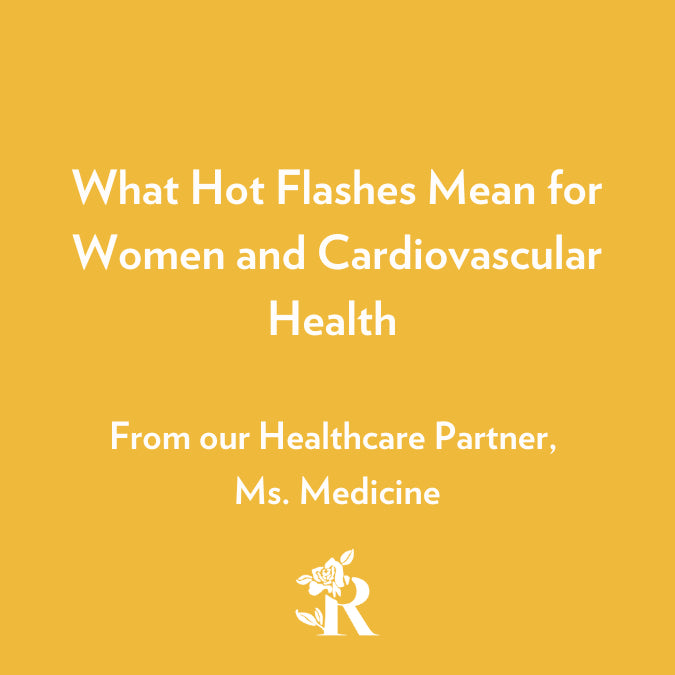What Hot Flashes Mean for Women and Cardiovascular Health from our Healthcare Partner, Ms. Medicine
A Feature from our Healthcare Partner, Ms. Medicine
Written by Dr. Lisa Larkin
We’ve seen it portrayed on TV and in the movies. That middle-aged woman standing in front of the open refrigerator trying to cool down, or the quips that middle-aged women “are still hot, just in flashes.” Jokes about night sweats and hot flashes during menopause have been one way that women have been told to just “get through it.” But two studies in the past year demonstrate that hot flashes and night sweats – or vasomotor symptoms (VMS)—are more than just an issue of quality of life; they could signal an increased risk of cardiovascular disease.
What are Hot Flashes?
Hot flashes (or flushes) are physiological episodes where a woman feels a sudden surge of body warmth or heat that can often result in sweating, discomfort and disrupted sleep. They are common during the menopause transition (and beyond); nearly 75% of women experience hot flashes related to menopause. And while bothersome, hot flashes were generally considered to be harmless – just a symptom of a woman’s hormonal changes during menopause—until recent studies indicated otherwise.
What the Research Says
The first study, presented in the fall of 2019 at the North American Menopause Society’s annual conference, is based on data from the SWAN study – the Study of Women’s Health Across the Nation. SWAN is a multi-site, longitudinal study of more than 3,000 women starting at midlife and followed for 20+ years. Researchers discovered that women who had “frequent and persistent” symptoms were at higher risk (50 – 80 percent higher) for developing cardiovascular disease over their lifetime than those who had mild and/or infrequent hot flashes.
The study findings do not, however, necessarily indicate a causal relationship – meaning researchers don’t know if the hot flashes are the cause of the increase in cardiovascular disease, and thus don’t know if treating hot flashes can decrease a woman’s risk.
The second study, published in June of 2020, was based on data from the Australian InterLACE project. InterLACE is a project that “undertakes cross-cohort research by combining data at the individual level from more than 800,000 participants from 26 existing observational studies to investigate the role of reproductive health across the life course on future chronic disease events.” The study – out of the University of Queensland and published in the American Journal of Obstetrics and Gynecology – also found hot flashes and night sweats were linked to a 70-percent increase in non-fatal cardiovascular events, including heart attacks, angina and stroke. Severity of hot flashes (verses frequency and duration) were also considered to be a risk factor; women who experienced severe VMS were more than twice as likely to have a cardiovascular event than women who had no VMS.
What Does it Mean for Women?
As heart disease is the leading cause of death for women in the US, this research simply strengthens the recommendations for women to lead a heart-healthy lifestyle. Women should be sure to get regular sleep and exercise, maintain a healthy body weight, strive for a plant-based diet (like the Mediterranean Diet), don’t smoke and limit alcohol. Doctors and their patients should be aware of this new data and determine if additional screening and/or interventions should be considered for women experiencing severe and frequent hot flashes during the menopause transition.
Read more at Concierge Medicine of Cincinnati, a Ms. Medicine Practice






















